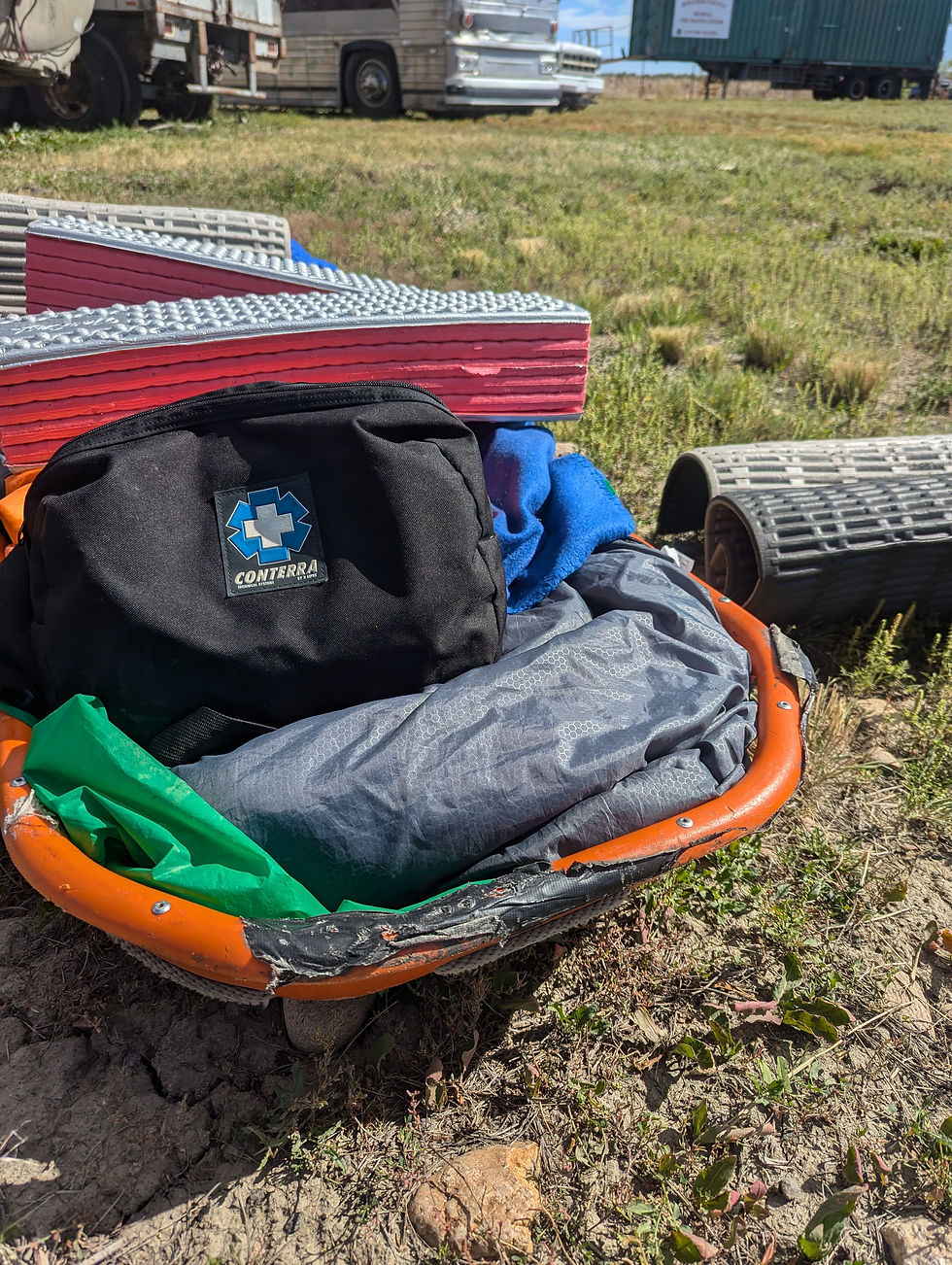Why Wilderness Medical Training is Essential for Outdoor Enthusiasts in Colorado Springs
- lamouria1983
- Mar 13, 2025
- 3 min read

Nestled at the base of Pikes Peak, Colorado Springs is a haven for outdoor lovers. Whether you're a local hitting the trails every weekend or a visitor eager to experience the grandeur of the Rocky Mountains, one thing is sure: nature is unpredictable. With El Paso County Search and Rescue (PCSAR) responding to over 100 rescue incidents a year, particularly for injured hikers on the Barr Trail, it’s clear that adventurers should be prepared for medical emergencies.
One of the best ways to ensure safety in the wilderness is through medical training designed for remote environments. Whether you're an avid hiker, a weekend backpacker, or a professional guide, wilderness medical training offers invaluable skills that could save your life or someone else's life on the trail.
The Reality of Outdoor Emergencies
Colorado Springs’ close proximity to the mountains means people of all skill levels venture into the backcountry, often underestimating the risks. Pikes Peak alone sees thousands of hikers, many of whom face challenges like altitude sickness, dehydration, sprains, or even fractures. In 2022, PCSAR received 212 calls for rescue operations, increasing to 220 in 2023. Most rescues happen around midday, with Saturdays being the week's busiest day—proving that even well-traveled trails aren’t without risk.
Due to limited access to medical care, injuries in the backcountry can quickly escalate. Knowing how to assess, stabilize, and treat injuries on-site can differentiate between a successful rescue and a life-threatening situation.
Why Wilderness Medical Training is a Game Changer
1. Self-Sufficiency and Confidence
Handling Emergencies in Remote Locations: Help can be hours away in the backcountry (El Paso SAR’s average rescue lasting nearly 4 hours). Wilderness medical training equips you with skills to provide care in rugged terrain, extreme weather, and isolated settings.
Stabilizing a Patient Until Help Arrives: With proper training, you can assess injuries, apply first aid, and decide whether a person needs immediate evacuation or can safely hike out.
Avoiding Panic: Training reduces fear and uncertainty in emergencies, allowing you to act quickly and effectively.
2. Essential Medical Skills for the Outdoors
Patient Assessment: Learn how to take vitals, recognize signs of shock, and determine the severity of an injury.
Trauma Management: Gain hands-on experience treating sprains, fractures, wounds, hypothermia, frostbite, heatstroke, and more.
Improvisation Skills: When medical supplies are limited, use available materials to create splints, slings, and bandages.
Evacuation Planning: Know how to make informed decisions about calling for rescue, self-evacuating, or waiting for assistance.
Preventing Injuries Before They Happen: Learn proactive measures, such as proper hydration, nutrition, and injury prevention techniques, that can reduce risk.
Who Should Take Wilderness Medical Training?
While everyone who ventures outdoors can benefit, some groups have an even greater need for these skills:
Hikers, Climbers, and Backpackers: If you enjoy solo hikes or long treks, knowing wilderness medicine can mean the difference between a minor setback and a major emergency.
Outdoor Professionals: Guides, trip leaders, and search and rescue personnel should be trained to manage emergencies effectively.
Hunting and Fishing Enthusiasts: Those who spend long hours in remote locations should know how to handle injuries when they are far from immediate help.
Families Who Camp and Explore Together: Parents can benefit greatly from knowing how to treat children's cuts, burns, and allergic reactions while out in nature.
Training Courses Available
If you’re ready to be more prepared for your adventures in the Colorado Springs area, consider these courses:
Wilderness First Aid (WFA): This is a basic course for casual hikers and campers that covers common injuries and illnesses.
Wilderness First Responder (WFR): Designed for those who spend extended time in the wilderness, this course offers in-depth medical training and decision-making skills.
Peace of Mind in the Mountains
Knowing how to handle medical emergencies in the wilderness doesn’t just make you a safer adventurer—it gives you the confidence to explore more and worry less. By being medically trained, you can prevent injuries, respond effectively to emergencies, and even save lives.
For those who call Colorado Springs home or visit the stunning landscapes of Pikes Peak, wilderness medical training isn’t just a good idea—it’s a necessity. Take the step today to become a more prepared and responsible adventurer.
Are you ready to be self-sufficient in the wilderness? Book a wilderness medical training course with Turn Left Adventures and equip yourself with the skills to stay safe on the trail!
.png)






Comments